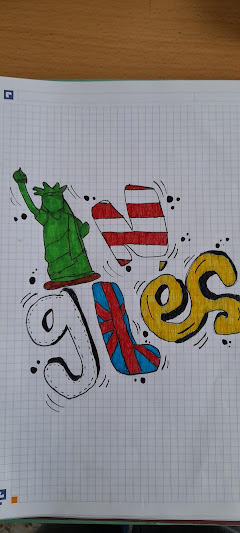Infinitives are formed with the BASE plus TO.
USES:
- After
some ADJECTIVES: busy, happy, ready, tired, willing. They were happy to
see you
- After
some ADVERBS: slowly, fast, low. He walked too slowly to catch the train
- As
the SUBJECT when talking about a concrete fact. To leave now will be a
mistake
- To
explain PURPOSE: We went to solve the problem
- With
some VERBS: afford, agree, appear, ask, beg, care, choose, claim, dare,
decide, demand, expect, fail, hope, learn, manage, need, offer, plan, prepare,
pretend, promise, refuse, seem, try, wait, want, wish. She refused to talk about her private life
Verb + Object +
TO-infinitive:
Some verbs are followed by an object and the
TO-infinitive. In the negative form, NOT goes before the TO-infinitive: advise,
allow, ask, beg, convince, command, encourage, expect, forbid, force, help,
invite, need, order, permit, persuade, request, teach, tell, want, warn.
Mike told his young brother not to touch the
plough.
Jane convinced her mother to buy the lamp.
I allow you to go to the toilet.
Verb + Object + BASE:
Some verbs are followed by an object and the
BASE without TO. This structure is usually used with verbs of perception (see,
hear, feel, listen to, smell, watch) and make and let.
I saw the runner win the race.
Our teacher always makes us copy the
instructions.
Please, let me go.
GERUND
Gerunds are formed with the BASE plus ING.
USES:
- After
PREPOSITIONS: I am very proud of being Spanish.
- As
the SUBJECT when talking in general: Smoking is unhealthy
- With
some EXPRESSIONS: be used to, get used to, can’t help, can’t stand, don’t
mind, wouldn’t mind, feel like, it’s no use, look forward to, spend
(time). It's no use buying her a present
- With
some VERBS: admit, avoid, consider, continue, delay, deny, detest, dislike,
enjoy, finish, give up, hate, imagine, like, love, mention, mind, miss,
practise, prefer, recommend, resent, resist, suggest, understand.
1) FORGET:
- Forget + Gerund (the act of
forgetting is after the past activity):
I will never forget winning the
championship.
- Forget + Infinitive (the act of
forgetting is before the action):
Don't forget to buy some milk.
2) REMEMBER:
- Remember + Gerund (the act of
remembering is after the past activity):
He remembers visiting London for the
first time.
- Remember + Infinitive (the act of
remembering is before the action):
Remember to visit your parents.
3) REGRET:
- Regret + Gerund (the act of regretting
a past action):
I don't regret sending him out.
- Regret + Infinitive (a formal
statement):
We regret to inform passengers the
plain will be delayed.
4) MEAN:
- Mean + Gerund (to describe the
possible consequences of a decision):
His decision will mean spending lots
of money in the company.
- Mean + Infinitive (an intention or
a plan):
She means to start a new design.
5) STOP:
- Stop + Gerund (to abandon or put
an end to something):
He stopped smoking.
- Stop + Infinitive (To interrupt an
action to do something else):
We stopped the meeting to have
lunch.
6) TRY:
- Try + Gerund (a suggestion or a
possible solution to a problem):
Try opening the door with this key.
- Try + Infinitive (To attempt to do
something):
Don't make such a noise, I'm trying
to study.
VERBS THAT DON'T CHANGE MEANING WITH THE GERUND AND THE INFINITIVE
-
begin,
start, continue, like, love, hate, prefer.
STATIVE VERBS:
·
They
cannot be used in the progressive form
·
They
are used to express feelings, likes and dislikes, possession and mental
activities:
-
LOVE,
HATE, WANT
-
LIKE,
DISLIKE
-
OWN,
HAVE GOT
-
THINK,
REMEMBER, KNOW, UNDERSTAND, BELIEVE


